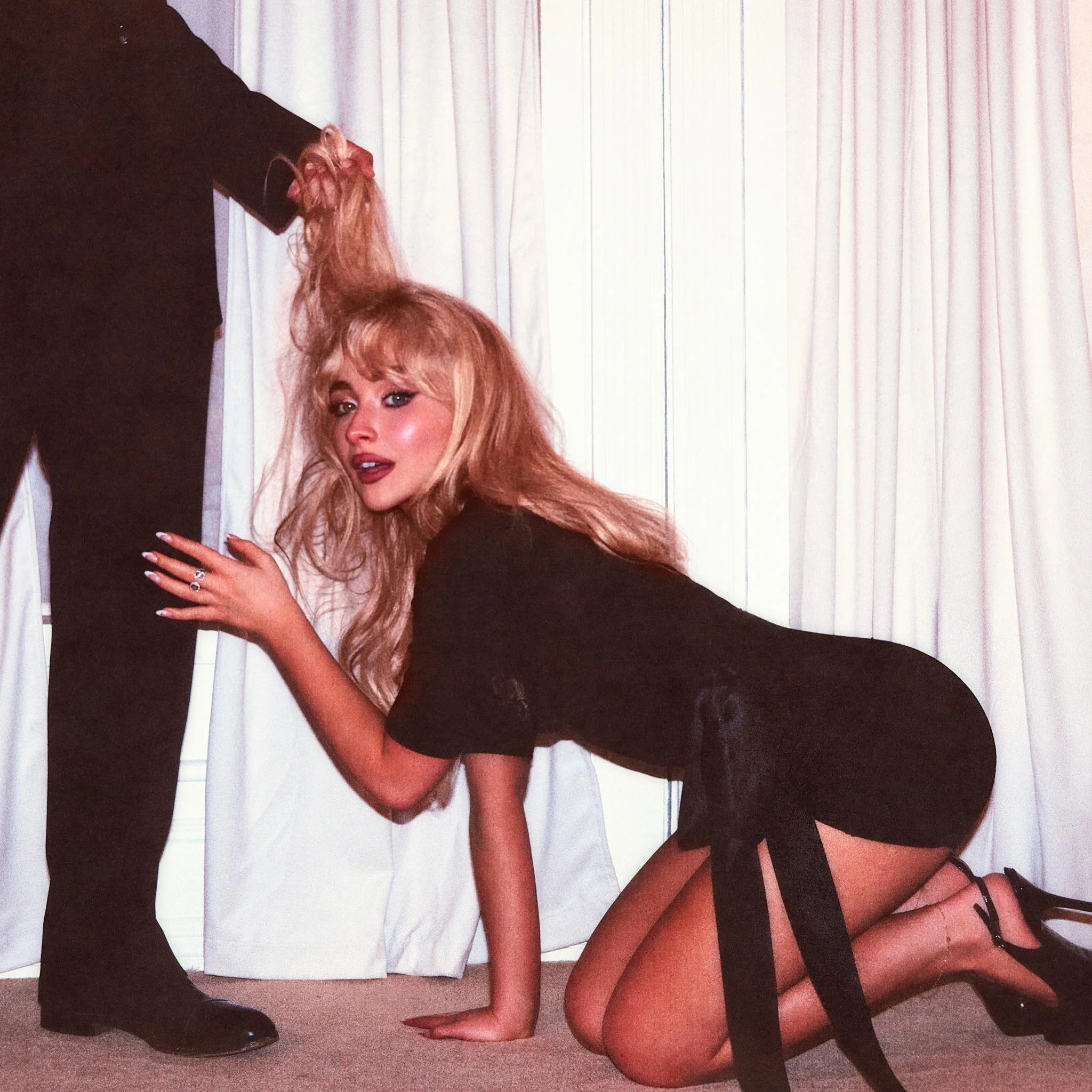Sabrina Carpenter - Man’s Best Friend
America’s reigning pop darling invites her listeners on a bittersweet odyssey through the wreckage of romance on her seventh studio album.
Over the past eighteen months, Sabrina Carpenter has all but ascended to the apex of pop culture. She became Taylor Swift’s tourmate and confidante, played to stadiums on the record-shattering Eras Tour, and released the breakthrough Short n’ Sweet, a glittering record that quickly became a global playlist staple. Yet one persistent complication remained: men. That vexing subject lies at the core of Man’s Best Friend, released via Island Records.
The lead single, “Manchild”, is a pointed send-off to her now-ex, actor Barry Keoghan, with whom she reportedly split late last year. The track — an earworm hovering between indie-pop sheen and country twang — doesn’t radically expand her catalog, but it does mark an artistic milestone: for the first time, Carpenter claimed a co-producer credit. As a stand-alone piece, “Manchild” felt somewhat heavy-handed, but paired with its sly video the song unlocked a sharper wit; its bridge, once lodged in the brain, refused to dislodge.
Follow-up single “Tears” is cut from similar fabric: a playful, rom-com-ready vignette in which Carpenter cheekily demands her partner meet the most basic threshold of affection. The theme of romantic disillusion continues on “My Man on Willpower”, where love masquerades as lavish gift-giving — only to be revealed as a hollow box, destined for the trash heap.
Carpenter is acutely aware of the emotional blind spots men so often occupy. “We Almost Broke Up Again Last Night” sketches the exhausting cycle of breakups and reconciliations, reminding us that toxicity can’t be negotiated, only severed. On “Nobody’s Son”, she turns her gaze outward, addressing her partner’s parents directly — holding them partly accountable for raising a man who betrayed her.
If the sonic palette of Man’s Best Friend isn’t a radical departure from its predecessor, it still offers luminous moments. “Never Getting Laid” pairs self-effacing humor with tongue-in-cheek commentary about female independence and lonely nights; “Go Go Juice” leans into Carpenter’s country flirtations, the kind of barroom stomper you’d expect to hear on a Friday night highway stopover.
“When Did You Get Hot?” nods toward ‘90s R&B in the vein of TLC, while “House Tour”, with its spectacular bridge, evokes the neon euphoria of ‘80s club nights. But Carpenter’s most transcendent moment arrives on “Don’t Worry I’ll Make You Worry”, a spiritual sequel to “Don’t Smile” from Short n’ Sweet: her voice, swathed in reverb and Jack Antonoff’s gauzy dream-pop textures, hasn’t sounded this radiant in years.
At its core, Man’s Best Friend is Carpenter staying true to her ethos: even at her lowest, when relationships unravel, she never wallows. Instead, she wields humor — her sharpest defense mechanism — with an instinctive balance: biting enough to cut, light enough to charm.
Ultimately, Man’s Best Friend opts for accessibility over reinvention. It doesn’t attempt to widen the thematic horizon of modern pop, but what it does deliver is a buoyant, witty, and irresistibly replayable record — one that makes returning to it feel less like obligation and more like instinct.
7.3/10




